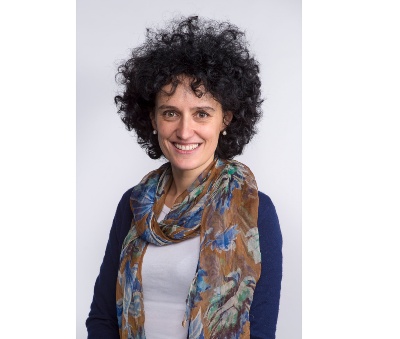Francesca Cellina
Francesca Cellina leads the Sustainability and Society research group at the Institute for Applied Sustainability to the Built Environment at the University of Applied Sciences of Southern Switzerland (SUPSI). Within SCCER Mobility, her research investigates the potential and effectiveness of ICT-based tools for increasing environmental consciousness. In particular, how these tools can influence individual mobility choices and patterns and ultimately aid in reducing the overall mobility demand. Research efforts are highly participatory and “in our projects, we always interact with citizens and stakeholders, and recently even started co-designing possible solutions with them”, she says.
What are your research topics and what is your role within SCCER Mobility?
I am interested in motivating citizens to save energy, by exploring different regulatory and monetary approaches. In particular, in SCCER Mobility I am exploring the effectiveness of ICT-based tools for increasing environmental awareness and persuading citizens to change their mobility patterns by reducing car use and their mobility demand as a whole. I am responsible for a small team of researchers at the University of Applied Sciences of Southern Switzerland (SUPSI) and in our projects, we always interact with citizens and stakeholders, and recently even started co-designing possible solutions with them: it is a fun activity! However, since these projects are also highly interdisciplinary (we build on energy, mobility, computer science and social psychology competences), coordinating them is also quite an effort.
Why did you become a scientist?
Uhm… I don’t think I can really call myself a scientist, I haven’t even concluded the PhD program I started soon after completing my university degree! However, I like working in applied research as I am currently doing at SUPSI. I am a strong supporter of sustainability, for the sake of the next generations, and I am keen on exploring new possibilities that favor a societal transition towards it.
What are your main career highlights?
As I told you, I have no traditional academic background. In fact, I decided to quit a PhD program in Ecology after one year, preferring to get engaged in applied research activities in a spin-off center of Politecnico di Milano, where I graduated in environmental engineering. There, I mainly worked in the field of participatory processes and environmental assessment, and was involved in research groups that introduced strategic environmental assessment (SEA) in Italy. When I moved to Switzerland in 2009, I started working in the energy field at SUPSI, developing energy plans at the local and regional level. A turning point came with a SUPSI-funded research project, during which I started building my own research field. This was in 2011 and the wide diffusion of smartphones had opened unprecedented possibilities that favor citizen engagement in more sustainable lifestyles. Designing and managing that project opened a promising area of research, in which I am still engaged today after more than six years.
What do you find fascinating/challenging about energy research and the energy transition?
Most people think that all we need to guarantee a successful energy transition is technological progress. While I do support technology and innovation, I am also aware it is a much more complex problem, dealing with people’s acceptance, individual lifestyles, engagement, and social practices as well. This calls for a broader and interdisciplinary perspective and for re-thinking the way, we design energy policies. In addition, how can we reduce energy poverty and guarantee equitable access to energy, which means progress, wealth and better living conditions, to all citizens of the world? This is probably the most challenging topic we need to face.
How do you think mobility will change in the next 10 years and what role will renewable energy play?
I am definitely convinced that mobility will become a service, which will allow us to exploit the most efficient combination of means of transport to reach our destination, thanks to the evolution of Intelligent Transport Systems. They will also make car and bicycle sharing and carpooling more common. New vehicles sold will mainly be plug-in electric hybrid vehicles, which will be totally integrated in smart-grid systems mainly fed by renewable energies. With their batteries used as bi-directional energy storage components, they will also contribute to grid stability. In ten years, technological progress in car automation will definitely allow self-driving cars, though I fear our society will not be able to agree on their regulatory framework. So, all in all, I think there will still be much room for bicycles, which are my passion!
What is your "work-life-balance" recipe?
Finding a balance is very difficult! I like what I am doing, I am personally engaged in my projects and they are at one with my lifestyle and offer opportunities for interacting with a large variety of interesting people. During the week, I am totally absorbed by them. But on the weekends I love spending time in a small village in the countryside in my grandparents’ old house. There I dedicate my time to manual activities, such as giving new life to antique furniture or simply gardening or walking and I recharge for the next week.
Interview: Kirsten Oswald (SCCER Mobility), December 2017
!!! This document is stored in the ETH Web archive and is no longer maintained !!!
